The Mark of Doom: What Our Ancestors Thought of Solar Eclipses
Carly Tennes
Published
04/08/2024
in
ftw
Though to us modern-day folks, eclipses are days for big ‘ol road trips and possibly getting blinded by staring directly at the sun, for several generations — and civilizations — past, the eclipse had a whole lot more meaning than just an excuse to spend some quality time outside.
From demons eating the sun to Loki — yes, that Loki — causing chaos, here are what some of our ancestors thought of solar eclipses.
- List View
- Player View
- Grid View
Advertisement
-
1. Hinduism: Demon Eating The Sun
.jpg) "The story of eclipses, especially solar eclipses, falls around demons swallowing the sun, so it's seen generally as ominous. In modern India that also leads to many people being discouraged from viewing the eclipse, although also as a Hindu astronomer, I don't completely agree with that." —Eesha Das Gupta, PhD Candidate at the University of Toronto’s astronomy department
"The story of eclipses, especially solar eclipses, falls around demons swallowing the sun, so it's seen generally as ominous. In modern India that also leads to many people being discouraged from viewing the eclipse, although also as a Hindu astronomer, I don't completely agree with that." —Eesha Das Gupta, PhD Candidate at the University of Toronto’s astronomy department -
2. Judiasm: A Time For Reflection
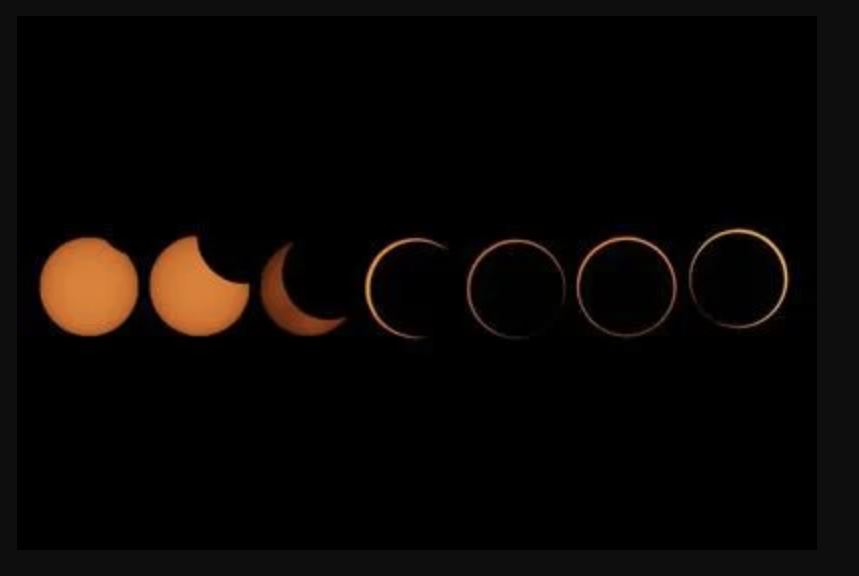 “[G-d] created a system that would remind us regularly that our choices can create darkness, even at times when there should be light. Our free will choices can create a barrier between us and the Divine light, but can also allow Divine light to be seen here.” —Rabbi Mordechai Becher, Yeshiva University instructor.
“[G-d] created a system that would remind us regularly that our choices can create darkness, even at times when there should be light. Our free will choices can create a barrier between us and the Divine light, but can also allow Divine light to be seen here.” —Rabbi Mordechai Becher, Yeshiva University instructor. -
3. Ancient Greeks: Ominous Signs-Turned Predictable Science
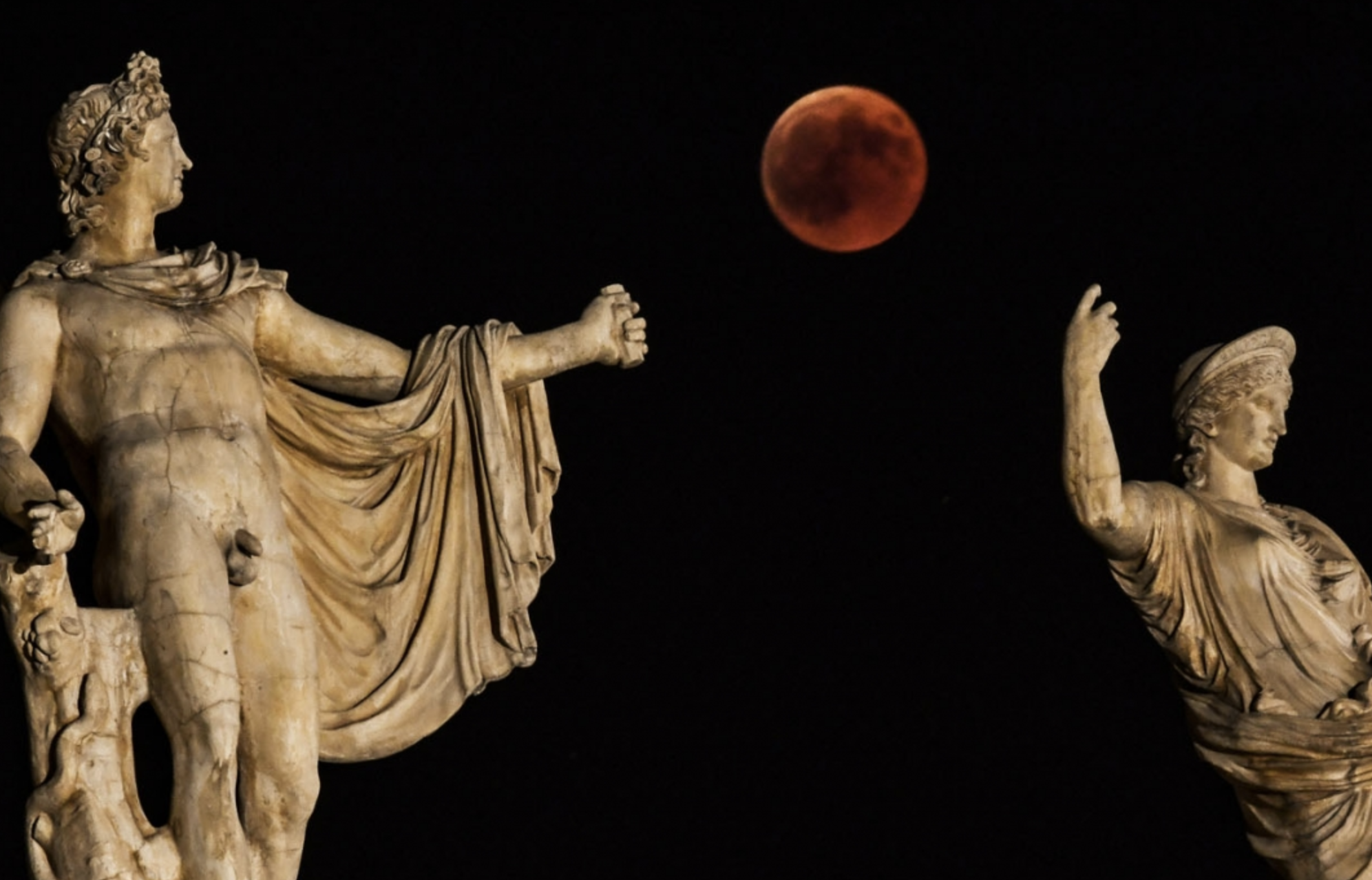 "Eclipses tended to be thought of as showing something evil that was coming, the death of someone or loss in battle or something like that … by the 5th century BC, there were Greek philosophers and scientists who had figured out how in fact, both lunar and solar eclipses worked and that they were cyclical events that could be predicted.” — Max Nelson, Associate Greek and Roman Studies Professor at the University of Windsor
"Eclipses tended to be thought of as showing something evil that was coming, the death of someone or loss in battle or something like that … by the 5th century BC, there were Greek philosophers and scientists who had figured out how in fact, both lunar and solar eclipses worked and that they were cyclical events that could be predicted.” — Max Nelson, Associate Greek and Roman Studies Professor at the University of Windsor -
4. Ancient Maya: Scrapping Gods
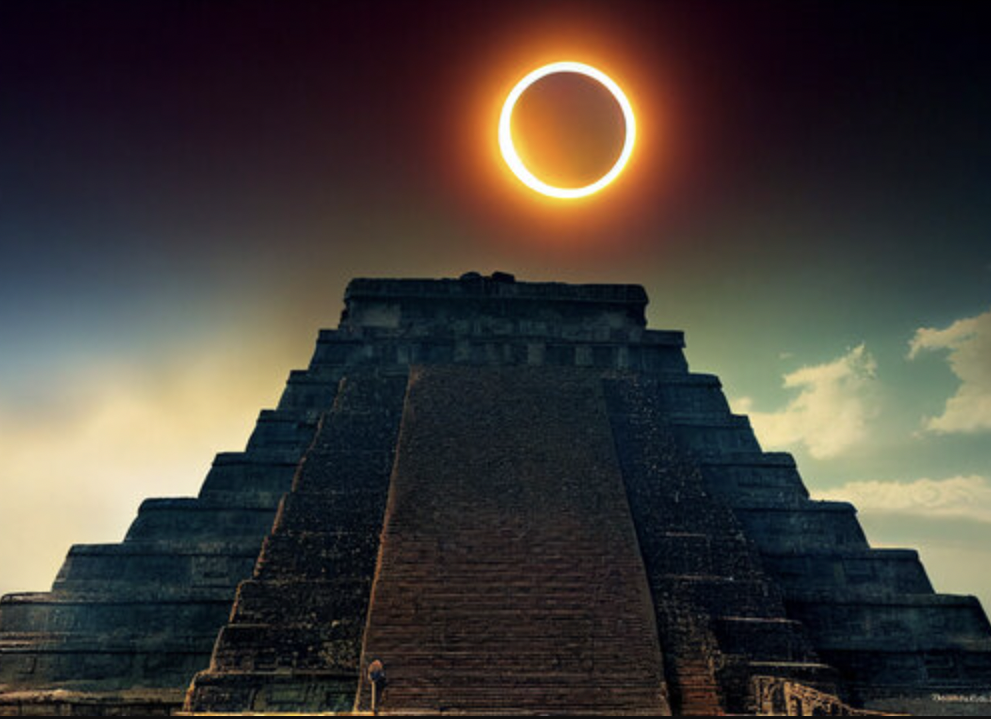 “In the Maya’s belief system, sunsets were associated with death and decay. Every evening the sun god, Kinich Ahau, made the perilous journey through Xibalba, the Maya underworld, to be born anew at sunrise. Solar eclipses were seen as a “broken sun” – a sign of possible cataclysmic destruction. Kinich Ahau was associated with prosperity and good order. His brother Chak Ek – the morning star, which we now know as the planet Venus – was associated with war and discord. They had an adversarial relationship, fighting for supremacy. Their battle could be witnessed in the heavens. During solar eclipses, planets, stars and sometimes comets can be seen during totality. If positioned properly, Venus will shine brightly near the eclipsed Sun, which the Maya interpreted as Chak Ek on the attack. This is hinted at in the Dresden Codex, where a diving Venus god appears in the solar eclipse tables, and in the coordination of solar eclipses with the Venus cycles in the Madrid Codex, another Maya folding book from the late 15th century. With Kinich Ahau – the Sun – hidden behind the Moon, the Maya believed he was dying. Renewal rituals were necessary to restore balance and set him back on his proper course.” — Kimberly H. Breuer, instructor at The University of Texas at Arlington
“In the Maya’s belief system, sunsets were associated with death and decay. Every evening the sun god, Kinich Ahau, made the perilous journey through Xibalba, the Maya underworld, to be born anew at sunrise. Solar eclipses were seen as a “broken sun” – a sign of possible cataclysmic destruction. Kinich Ahau was associated with prosperity and good order. His brother Chak Ek – the morning star, which we now know as the planet Venus – was associated with war and discord. They had an adversarial relationship, fighting for supremacy. Their battle could be witnessed in the heavens. During solar eclipses, planets, stars and sometimes comets can be seen during totality. If positioned properly, Venus will shine brightly near the eclipsed Sun, which the Maya interpreted as Chak Ek on the attack. This is hinted at in the Dresden Codex, where a diving Venus god appears in the solar eclipse tables, and in the coordination of solar eclipses with the Venus cycles in the Madrid Codex, another Maya folding book from the late 15th century. With Kinich Ahau – the Sun – hidden behind the Moon, the Maya believed he was dying. Renewal rituals were necessary to restore balance and set him back on his proper course.” — Kimberly H. Breuer, instructor at The University of Texas at Arlington -
5. Mesopotamia: A Shift In Power
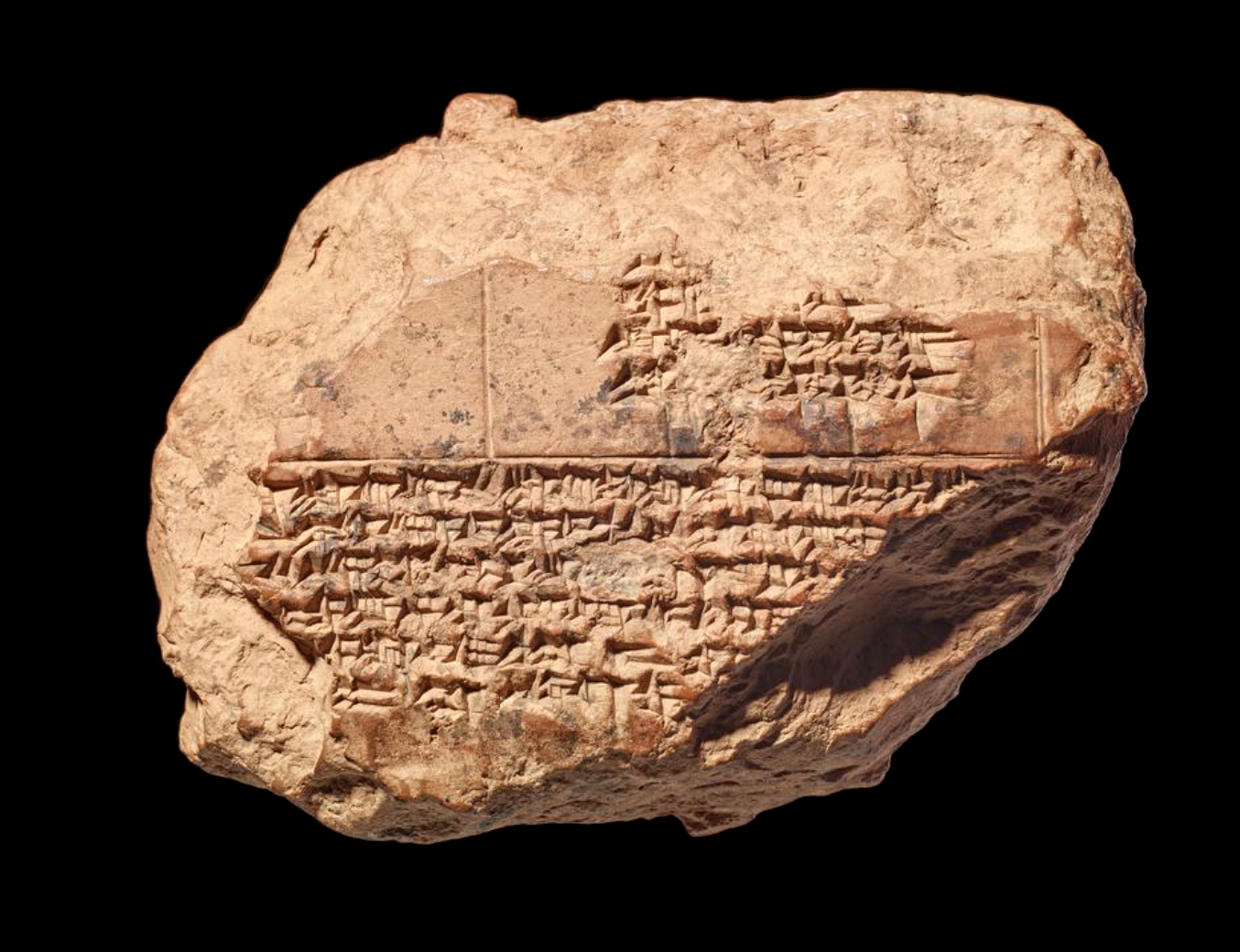 “One of the most serious omens was a solar eclipse, which predicted grave danger for the ruler of the area of the world in which it appeared. Ancient Mesopotamian astronomers had developed the knowledge to accurately predict eclipses with a high degree of precision. Once an eclipse was predicted and the area in which it would appear had been identified, the court and the priests took action. If the eclipse took place over Assyria, for instance, the Assyrian king would be in danger, and for the king to be in danger put the entire power structure of the kingdom at risk. So a substitute would be put in his place—literally, a substitute king, or šar pûhi (shar PU-khee) in Akkadian, the language of the Assyrian court and its official documents.” — Sarah Graff, Curator at the Metropolitan Museum of Art’s Department of Ancient Near Eastern Art
“One of the most serious omens was a solar eclipse, which predicted grave danger for the ruler of the area of the world in which it appeared. Ancient Mesopotamian astronomers had developed the knowledge to accurately predict eclipses with a high degree of precision. Once an eclipse was predicted and the area in which it would appear had been identified, the court and the priests took action. If the eclipse took place over Assyria, for instance, the Assyrian king would be in danger, and for the king to be in danger put the entire power structure of the kingdom at risk. So a substitute would be put in his place—literally, a substitute king, or šar pûhi (shar PU-khee) in Akkadian, the language of the Assyrian court and its official documents.” — Sarah Graff, Curator at the Metropolitan Museum of Art’s Department of Ancient Near Eastern Art -
6. Norse Mythology: Loki’s Revenge
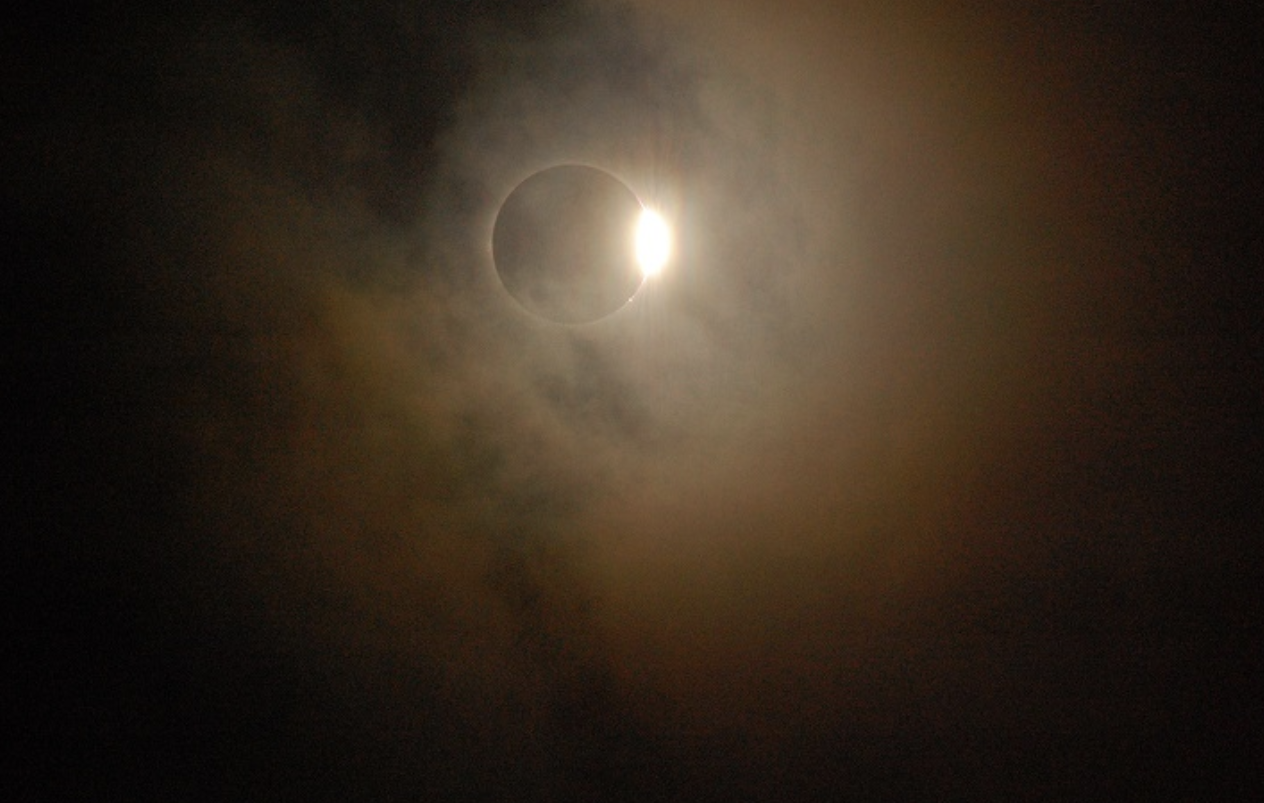 “In Norse culture, the evil enchanter Loki is chained by the gods. He gets revenge by creating wolflike giants, one of which swallows the Sun. Another of the giant wolves chases the moon, trying to eat it.” — a resource from San Francisco’s Exploratorium learning laboratory and museum
“In Norse culture, the evil enchanter Loki is chained by the gods. He gets revenge by creating wolflike giants, one of which swallows the Sun. Another of the giant wolves chases the moon, trying to eat it.” — a resource from San Francisco’s Exploratorium learning laboratory and museum -
7. Navajo Culture: Deep prayer
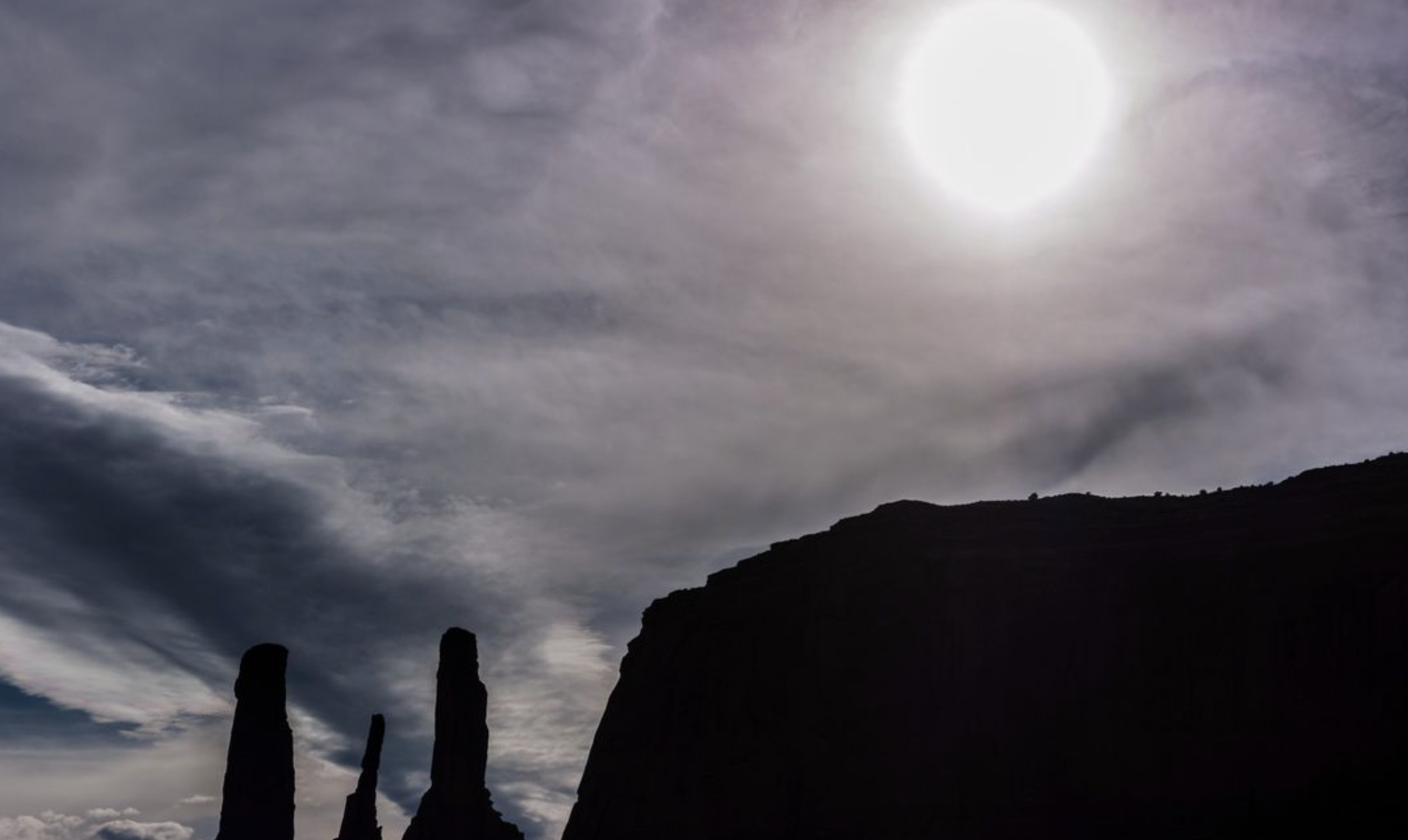 “You stay in reverence during this time. We are respectful, we stay in the house, and in there we stay calm. We don’t make noises, we meditate by prayers and songs. That’s when a protection song is used by Navajo.” —Henry Fowler, instructor at the Navajo Technical University
“You stay in reverence during this time. We are respectful, we stay in the house, and in there we stay calm. We don’t make noises, we meditate by prayers and songs. That’s when a protection song is used by Navajo.” —Henry Fowler, instructor at the Navajo Technical University
- REPLAY GALLERY
-
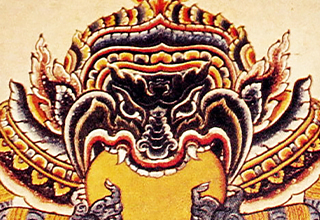
- The Mark of Doom: What Our Ancestors Thought of Solar Eclipses
- NEXT GALLERY
-

- 30 Fresh and Funny Tweets to Block Out the Sun
Hinduism: Demon Eating The Sun
"The story of eclipses, especially solar eclipses, falls around demons swallowing the sun, so it's seen generally as ominous. In modern India that also leads to many people being discouraged from viewing the eclipse, although also as a Hindu astronomer, I don't completely agree with that." —Eesha Das Gupta, PhD Candidate at the University of Toronto’s astronomy department
"The story of eclipses, especially solar eclipses, falls around demons swallowing the sun, so it's seen generally as ominous. In modern India that also leads to many people being discouraged from viewing the eclipse, although also as a Hindu astronomer, I don't completely agree with that." —Eesha Das Gupta, PhD Candidate at the University of Toronto’s astronomy department
7/7
1/7


.jpg)







3 Comments